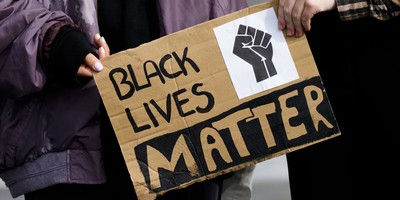When the president takes an official action, let alone one fundamentally altering the relationship between government and a major industry, two questions must be asked: Is it constitutional? Does the president have legal authority to do it?

In the case of the auto-industry bailout and restructuring program begun under President Bush and now escalating under President Obama, the answer to both questions is: no.
The Bush-Obama intrusion into the auto industry is an illegal use of the Troubled Asset Relief Program (TARP) enacted by Congress in October, and it flatly violates a fundamental constitutional provision.
TARP authorized the treasury secretary to spend $700 billion, but it did not authorize him to spend it anywhere on anything. While the definition of what he could spend it on ("troubled assets") was broad, the definition of where ("financial institutions") was narrow.
"The secretary is authorized to establish the Troubled Asset Relief Program (or 'TARP') to purchase, and to make and fund commitments to purchase, troubled assets from any financial institution," says the law.
The law gives "troubled asset" a two-part definition -- and part two is admittedly a wild card.
"The term 'troubled assets' means -- (A) residential or commercial mortgages and any securities, obligations, or other instruments that are based on or related to such mortgages, that in each case was originated or issued on or before March 14, 2008," says the law.
But part "(B)" says a "troubled asset" can also be "any other financial instrument that the Secretary, after consultation with the Chairman of the Board of Governors of the Federal Reserve System, determines the purchase of which is necessary to promote financial market stability."
Recommended
Definition "(B)" allowed then-Secretary Henry Paulson to use TARP funds to purchase ownership stakes in banks rather than the mortgage-backed securities he initially told Congress he intended to purchase.
Nonetheless, the "troubled assets" Paulson purchased were indisputably from "financial institutions" as defined by the law.
"The term 'financial institution,'" says the law, "means any institution, including, but not limited to, any bank, savings association, credit union, security broker or dealer, or insurance company, established and regulated under the laws of the United States or any State, territory, or possession of the United States ... ."
In other words, no matter how much wiggle room the law gives the secretary in defining "troubled assets," it does not give him the authority to purchase them from food, furniture or fishing rod makers. These are not "financial institutions."
That is why President Bush initially sought new authority from Congress when he wanted to bail out automakers. Automakers, like fishing rod makers, are not "financial institutions."
Congress famously considered, debated and defeated legislation that would have authorized President Bush to spend TARP money bailing out automakers.
In our constitutional system, that should have activated a principle so simple a second-grader can understand it and so important that our system of government depends on our leaders respecting it: Because Congress did not authorize the president to spend money bailing out automakers, the president is not authorized to spend money bailing out automakers.
Or as the Constitution puts it, "No money shall be drawn from the treasury, but in consequence of appropriations made by law."
As Bush pondered using TARP to bail out automakers after having been denied the authority to do so, some honest observers -- both liberal and conservative -- said such a move would be illegal and unconstitutional.
"Even if the administration were inclined to do so, it simply lacks the power under the statute passed by Congress to tap TARP funds to prop up auto manufacturers," Heritage Foundation analysts Andrew Grossman and James Gattuso concluded in a Dec. 12 WebMemo.
"Call me old-fashioned, but I believe in democracy," former Clinton Labor Secretary Robert Reich said Dec. 17 on the "Marketplace" public-radio show. "And under our Constitution, Congress is in charge of appropriating taxpayer money. If Congress explicitly decides not to appropriate it for a certain purpose, where does the White House get the right to do so anyway?"
Citing Reich and Heritage, CNSNews.com's Fred Lucas asked White House Spokesman Robert Gibbs at Monday's briefing why President Obama was going to "use more TARP funds, considering that it is legally questionable."
Gibbs essentially said it is legal because the Obama administration -- like the Bush administration before it -- says it is legal.
"I think that determination has been made, both in the previous administration and in the current administration, that this is assistance that is -- is legal," said Gibbs. "Our goal is to ensure that taxpayers in any instance where money is used feel confident that it's being done in a transparent and accountable way, and one that protects their interests."
What about our interest in having presidents who obey the Constitution?

























Join the conversation as a VIP Member